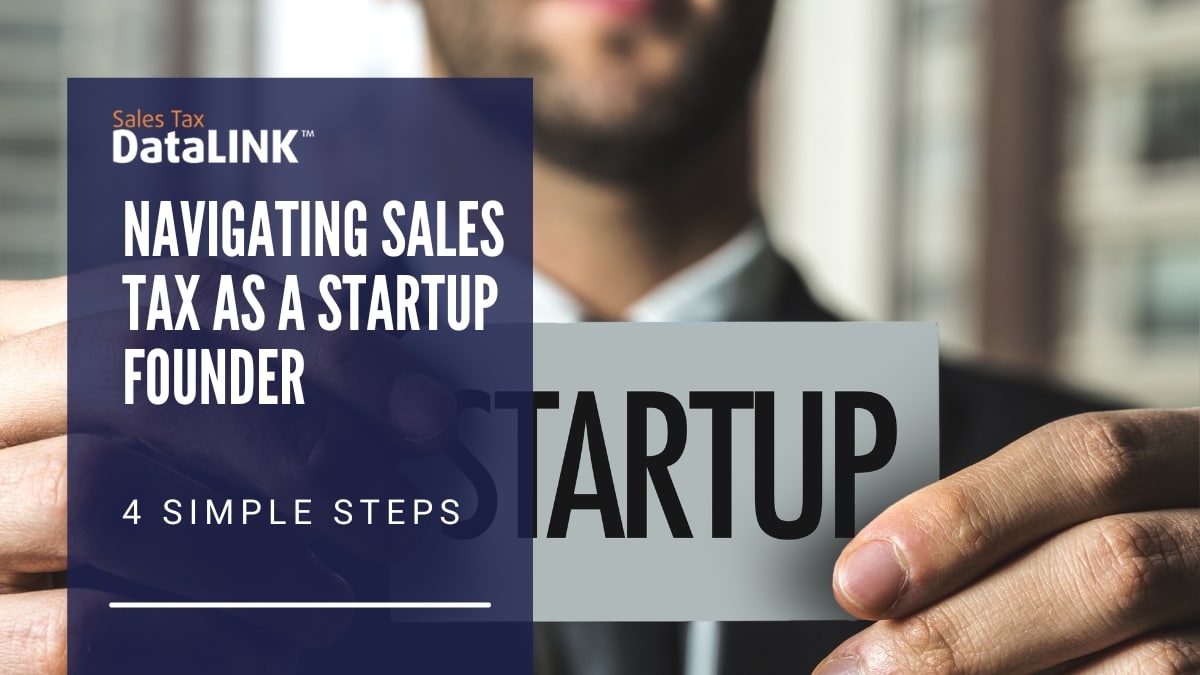Understanding Sales Tax as a Startup Founder
Startup founders have a lot on their minds. From taking the right steps forward for growth to avoiding business-killing mistakes, there’s a lot of worry in a startup’s life. Most startups understand they need to pay income taxes and other business taxes but might not even think about other lesser-known, more complex tax laws. Sales tax can easily nail your startup just at a time when you’re seeing the enormous growth you’ve worked for. And when you’ve got a lot on your mind, adding in sales tax deadlines, laws, and compliance requirements isn’t an easy task.
Startup owners, venture-funded or bootstrapped, need to understand what sales tax is and the repercussions of not ensuring sales tax is collected and remitted in a timely fashion. No matter how big or how small your business, sales tax can mean the demise of your hard work and possibly even jail time. Sales tax isn’t a tax you want to mess with. How can you ensure your startup is safe from sales tax mistakes?
- Understand your sales tax liabilities. Every business has different sales tax liabilities, even those that are in the service industry. Knowing what kinds of sales tax liabilities your startup has and what kinds of sales tax laws apply to your startup’s industry is crucial to getting sales tax right. Do you need to charge sales tax in multiple states? What rates should you charge for different products or services you offer? Are there special laws you need to understand for your startup’s sales tax liabilities? There are endless questions you need to cover to start to understand how much money is potentially at risk if your startup makes sales tax mistakes. But knowing these answers can help you ensure your startup is on the right track for uninterrupted and continuing growth.
- Collect the right amount at the right time. Whether your startup uses an online shopping cart, invoices, or retainers for payments from customers and clients, investing in the proper tools for sales tax at the time of purchase is a necessity to protect your startup. While ignoring sales tax is convenient, it’s not worth risking it all because you don’t want to take the proper steps or invest in the right technology. Sales tax invoicing solutions run the gamut from extremely expensive to very moderately priced. Look for a sales tax engine that can accurately calculate in the situations you need it to in the price range you can afford.
- Remit the payments on time. With the thousands of tasks, startups have to handle, often with very few people to do them, deadlines can easily be missed. Tax deadlines, however, are the kinds of deadlines your startup absolutely can’t afford to miss. Penalties and fees for late sales tax payments can add up quickly for your startup and result in a sales tax audit—which will end up costing your company thousands of dollars in hours to manage the audit process. Instead, save yourself the much bigger investment and invest in the time to remit payments properly.
- Have a backup plan. Successful businesses always have a backup plan. A little-known secret of major companies is that they create contingent sales tax liability accounts for sales tax audits, penalties and interest. Most startups don’t have this kind of reserve to sit on, so using technology to keep your startup secure is a much better solution. As part of your taxation tools, look into a self-auditing software solution that allows your company to validate sales tax calculations prior to tax return filing. This patented process helps to improve your sales tax health and safeguard the company. No sales tax engine is perfect so having a backup technology to verify is important to keeping your startup compliant, even if you don’t have thousands in the bank to sit on like the big boys.
If you just don’t want to think about sales tax, don’t forget you can outsource your sales tax needs to another company so you can focus on growing your startup instead of managing sales tax.




